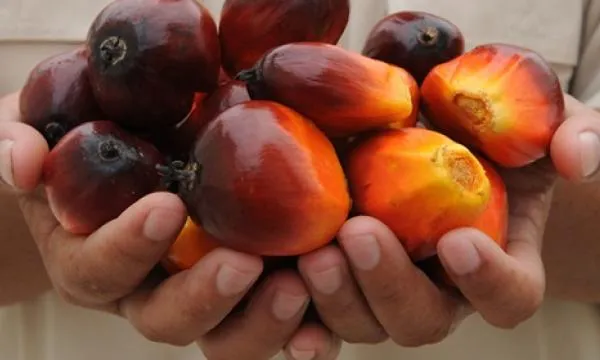
Plantation firms' Q1 profits hit by lower crude palm oil and FFB output
Production of fresh fruit bunches ranged from -2% to -35% for most companies.
Most Singapore-listed plantation companies disappointed expectations for abundant earnings in Q1 due to either lower-than-expected production or lower sales volumes.
UOB Kay Hian analyst Leow Huey Chuen noted that the companies in their coverage reported lower quarter-on-quarter earnings due to seasonally lower crude palm oil (CPO) production and average selling prices (ASP), whilst the weaker yearly earnings were due to lower CPO ASPs.
Fresh fruit bunches (FFB) production also dropped on seasonality. Declines in FFB production ranged from -2% to -35%, except for Bumitama Agri and Wilmar International which reported QoQ increases in FFB production on the back of higher FFB yield.
Leow noted that the FFB production of 13 plantation companies with estates in Indonesia dropped 2.9% YoY. "Most of the plantation companies registered declines in FFB production in 1Q2018 due to the high base in 1Q2017," he added.
However, Tunas Baru Lampung, Bumitama Agri, First Resources, Wilmar, and London Sumatra reported YoY increases in FFB production. "The key reasons that led to Bumitama Agri's and First Resources’ FFB YoY production increases were improved FFB yields supported by new areas coming into maturity. TBLA, Wilmar, and LSIP reported higher FFB production on improved FFB yields," Leow said.
FFB production is expected to increase only marginally QoQ. "In recent briefings, Singapore-listed plantation companies under our coverage guided that their FFB production is likely to increase marginally QoQ on the back of a yield recovery. We understand that the Ramadhan and Lebaran festivities could affect harvesting activity as fewer workers are available during the festive holiday season," Leow added.
UOBKH expects FFB production ratio is expected to be at 40-45% in the first half of 2018 and 55-60% for the second half, implying a stronger FFB production in H2.



![SBR 5 Lorem Ipsum News 2 [8 May]](https://cmg-qa.s3.ap-southeast-1.amazonaws.com/s3fs-public/styles/exclusive_featured_article/public/2025-05/a_hand_pointing_to_a_futuristic_technology_5b87c9d0e3_3.png.webp?itok=M3Hf-9XR)
![SBR 4 Lorem Ipsum [8 May Top Stories]](https://cmg-qa.s3.ap-southeast-1.amazonaws.com/s3fs-public/styles/exclusive_featured_article/public/2025-05/a_hand_pointing_to_a_futuristic_technology_5b87c9d0e3_2.png.webp?itok=2m5Wl0MX)


![Exclusive three SBR 12 Lorem Ipsum [8 May]](https://cmg-qa.s3.ap-southeast-1.amazonaws.com/s3fs-public/styles/exclusive_featured_article/public/2025-05/a_hand_pointing_to_a_futuristic_technology_5b87c9d0e3_11.png.webp?itok=8kn_UIfA)
![SBR 3 Lorem Ipsum [ Exclusive 2]](https://cmg-qa.s3.ap-southeast-1.amazonaws.com/s3fs-public/styles/exclusive_featured_article/public/2025-05/a_hand_pointing_to_a_futuristic_technology_5b87c9d0e3_1.png.webp?itok=YCyjLegJ)
![SBR 2 Lorem Ipsum [8 May]](https://cmg-qa.s3.ap-southeast-1.amazonaws.com/s3fs-public/styles/exclusive_featured_article/public/2025-05/a_hand_pointing_to_a_futuristic_technology_5b87c9d0e3_0.png.webp?itok=_cKD-29o)

![Video [Event News]](https://cmg-qa.s3.ap-southeast-1.amazonaws.com/s3fs-public/styles/event_news_featured_article/public/2025-05/screenshot-2025-05-08-at-4.58.53-pm_0.png.webp?itok=Kud35sMs)
![Event News SBR 9 Lorem Ipsum [8 may]](https://cmg-qa.s3.ap-southeast-1.amazonaws.com/s3fs-public/styles/event_news_thumbnail/public/2025-05/a_hand_pointing_to_a_futuristic_technology_5b87c9d0e3_8.png.webp?itok=DTh_dbYp)
![Event News SBR 9 Lorem Ipsum [8 May]](https://cmg-qa.s3.ap-southeast-1.amazonaws.com/s3fs-public/styles/event_news_thumbnail/public/2025-05/a_hand_pointing_to_a_futuristic_technology_5b87c9d0e3_7.png.webp?itok=vzDAzb6V)
![Event News SBR 8 Lorem Ipsum [8 May]](https://cmg-qa.s3.ap-southeast-1.amazonaws.com/s3fs-public/styles/event_news_thumbnail/public/2025-05/a_hand_pointing_to_a_futuristic_technology_5b87c9d0e3_6.png.webp?itok=jvHFc4P6)
![Video [Event News]](https://cmg-qa.s3.ap-southeast-1.amazonaws.com/s3fs-public/styles/video_thumbnail/public/2025-05/screenshot-2025-05-08-at-4.58.53-pm_0.png.webp?itok=yZnI0YBb)
![Video 1 SBR [8 May]](https://cmg-qa.s3.ap-southeast-1.amazonaws.com/s3fs-public/styles/video_thumbnail/public/2025-05/screenshot-2025-05-08-at-4.58.53-pm.png.webp?itok=9AAeRz_k)

 Advertise
Advertise

